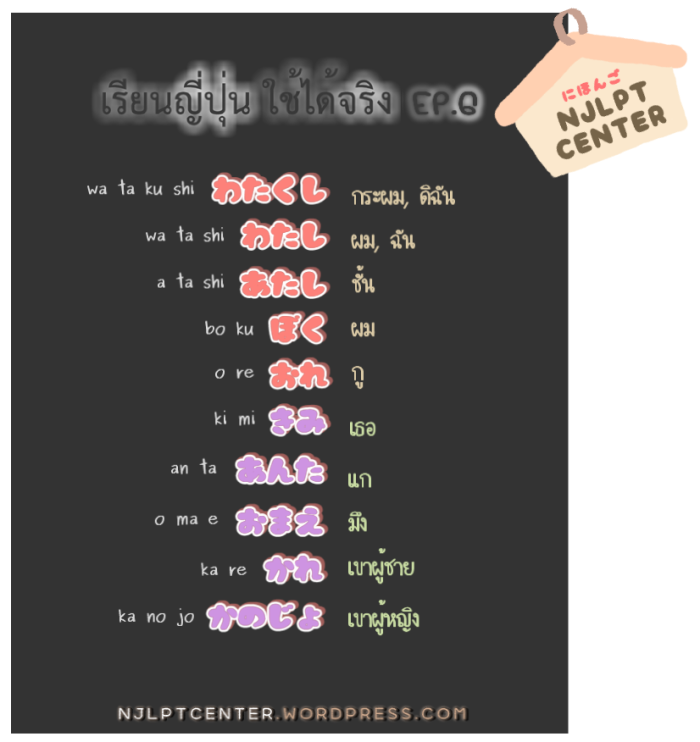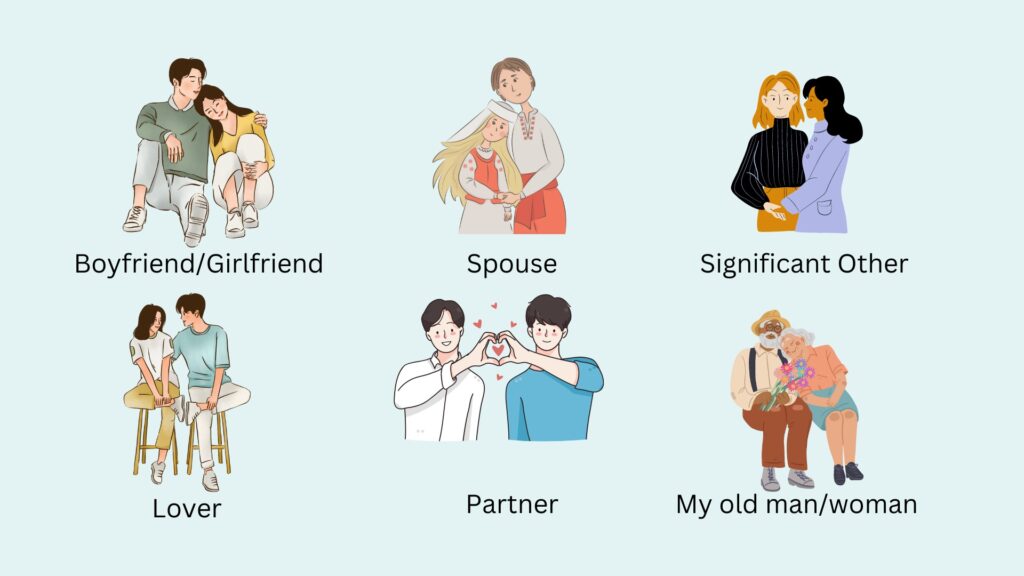เป็นแฟนกันนะ ภาษาอังกฤษ: คำแนะนำแรกสำหรับผู้เริ่มต้น
NỘI DUNG TÓM TẮT
- 1 “เป็นแฟนกัน” ภาษาอังกฤษใช้คำว่า?
- 2 เป็นแฟนกันนะ ภาษาอังกฤษ: A Comprehensive Guide to Expressing Romantic Interest in English
- 3 Understanding the Phrase
- 4 Context and Usage
- 5 Common Scenarios
- 6 Expressing Feelings in English
- 7 Cultural Nuances
- 8 Learning from Examples
- 9 Additional Vocabulary
- 10 Practice and Application
- 11 Online Resources for Further Learning
- 12 FAQs
- 12.1 Q1: What does เป็นแฟนกันนะ mean in English?
- 12.2 Q2: How can I express romantic interest in English?
- 12.3 Q3: Are there cultural differences in expressing romantic interest?
- 12.4 Q4: What are some additional phrases for expressing affection in English?
- 12.5 Q5: Where can I find online resources for learning English?
- 13 ลองคบกันดูไหม ภาษาอังกฤษ
- 14 ขอเป็นแฟน ภาษาอังกฤษ Pantip
- 15 ขอเป็นแฟน ภาษาอังกฤษ pantip: A Comprehensive Guide
- 16 Understanding the Phrase: ขอเป็นแฟน ภาษาอังกฤษ
- 17 A Guide to Expressing Romantic Interest in English
- 18 Frequently Asked Questions (FAQ)
- 18.1 Q1: Is it common to express romantic interest in English on Pantip?
- 18.2 Q2: Are there specific cultural considerations when expressing romantic interest in English?
- 18.3 Q3: How can I practice expressing romantic interest in English?
- 18.4 Q4: Any tips for staying motivated in learning English expressions of love?
- 19 เป็นแฟนกับฉันไหม ภาษาอังกฤษ
“เป็นแฟนกัน” ภาษาอังกฤษใช้คำว่า?
Keywords searched by users: เป็นแฟนกันนะ ภาษาอังกฤษ ลองคบกันดูไหม ภาษาอังกฤษ, ขอเป็นแฟน ภาษาอังกฤษ pantip, เป็นแฟนกับฉันไหม ภาษาอังกฤษ, ตอบตกลงเป็นแฟน ภาษาอังกฤษ, เป็นแฟนกันไหม ภาษาจีน, เป็นแฟนกันไหม ภาษาญี่ปุ่น, เป็นแฟนกันไหม ภาษาเกาหลี, ขอเป็นแฟน ภาษาจีน
เป็นแฟนกันนะ ภาษาอังกฤษ: A Comprehensive Guide to Expressing Romantic Interest in English
In the realm of relationships, expressing romantic interest is a universal aspect of human interaction. Whether you are navigating the exciting journey of love or simply exploring the nuances of expressing feelings in English, understanding phrases like “เป็นแฟนกันนะ” (pronounced pen faen gan na) can be both enriching and essential. This phrase, translated as “Let’s be a couple” or “Let’s be together,” holds a particular charm in the Thai language.
Understanding the Phrase
Before delving into the intricacies of expressing romantic interest in English, let’s dissect the Thai phrase เป็นแฟนกันนะ.
-
เป็นแฟน (Pen Faen): This part of the phrase translates to “be a couple” or “be together.” It signifies the desire to establish a romantic connection.
-
กัน (Gan): Adding “กัน” to the phrase indicates mutual action. In this context, it emphasizes the reciprocity of the romantic involvement.
-
นะ (Na): This is an informal particle commonly used in Thai language to soften the tone. It adds a sense of friendliness and suggests a level of informality in the proposal.
Putting it all together, เป็นแฟนกันนะ can be interpreted as a friendly and mutual invitation to become a couple.
Context and Usage
The usage of เป็นแฟนกันนะ extends beyond verbal expressions of romantic interest. It can be conveyed through various mediums, including text messages, social media, or even in person. Understanding the appropriate context for using this phrase is crucial to ensure that it is well-received.
Text Messages and Social Media
In the age of digital communication, expressing romantic interest through text messages or social media platforms has become commonplace. You can use เป็นแฟนกันนะ in a message to someone you are interested in, adding a personal touch to your communication.
Example:
css"Hey, I've really enjoyed our time together, and I was wondering if you'd like to be more than just friends. เป็นแฟนกันนะ?"
In-Person Expression
For those who prefer face-to-face communication, expressing your feelings in person can be a memorable and intimate experience. You can use the phrase in a casual yet sincere manner.
Example:
css"I've been thinking about us a lot, and I was wondering if you'd be interested in taking our friendship to the next level. เป็นแฟนกันนะ?"
Common Scenarios
ลองคบกันดูไหม ภาษาอังกฤษ (Lǒng khóp gan duu mai – Trying to Date in English)
Expressing romantic interest involves more than just proposing to be a couple; it also encompasses the process of dating. In English, the phrase “ลองคบกันดูไหม” translates to “Would you like to try dating?” This can be a natural progression after expressing the desire to be a couple.
To use this phrase effectively, consider the following scenario:
You’ve been spending time with someone you’re attracted to, and you feel a deeper connection developing. Instead of directly proposing to be a couple, you can suggest trying to date and see how it goes.
Example:
css"I've really enjoyed our time together, and I was wondering if you'd be open to trying to date. ลองคบกันดูไหม?"
ขอเป็นแฟน ภาษาอังกฤษ Pantip (Khǎw pen faen – Asking to Be a Couple in English)
Another variation of expressing romantic interest is the direct request “ขอเป็นแฟน” (Khǎw pen faen), meaning “Can I be your boyfriend/girlfriend?” This phrase adds a level of formality to the proposal.
In the context of expressing feelings in English, this can be used when you feel a strong connection and want to move beyond the initial stages of dating.
Example:
css"I've really enjoyed getting to know you, and I was wondering if I could be more than just a friend. ขอเป็นแฟนได้ไหม?"
ตอบตกลงเป็นแฟน ภาษาอังกฤษ (Tɔɔp dtòk long pen faen – Agreeing to Be a Couple in English)
When the moment of truth arrives, and you receive a positive response, the phrase “ตอบตกลงเป็นแฟน” (Tɔɔp dtòk long pen faen) can be used, indicating “Agreeing to be a couple.”
Example:
css"I'm really happy you feel the same way. So, would you agree to be my boyfriend/girlfriend? ตอบตกลงเป็นแฟนไหม?"
Expressing Feelings in English
While the Thai language has its charm, expressing romantic interest in English can be equally enchanting. Here are some phrases and expressions commonly used in English to convey feelings of affection:
-
Casual Approach:
- “I’ve enjoyed our time together. Would you be interested in going on a date sometime?”
- “I really like hanging out with you. What do you think about taking our friendship to the next level?”
-
Direct Proposal:
- “I’ve developed feelings for you, and I’d like to be more than just friends. Would you consider being my boyfriend/girlfriend?”
- “I’ve been thinking about us a lot, and I’d love for us to be a couple. What are your thoughts on that?”
-
Expressing Interest:
- “I find myself drawn to you, and I was wondering if you feel the same way.”
- “There’s something special about our connection, and I’d like to explore it further. How do you feel about that?”
-
Celebrating Mutual Feelings:
- “I’m thrilled that we both feel a connection. What do you think about officially being in a relationship?”
- “It means a lot to me that you feel the same way. Would you like to be my significant other?”
Cultural Nuances
Understanding cultural nuances is essential when navigating the delicate territory of expressing romantic interest. In both Thai and English cultures, sincerity, respect, and clear communication are valued. However, certain cultural differences should be taken into account.
In Thai culture, subtlety and implicit communication are often preferred. Expressing feelings indirectly through gestures, actions, and non-verbal cues is common. On the other hand, English culture tends to appreciate more direct communication, especially when it comes to romantic relationships.
Learning from Examples
To further illustrate the nuances of expressing romantic interest in English, let’s explore real-life examples from various sources:
-
TikTok Video:
- Watch the TikTok video for a playful and creative take on expressing romantic interest in English.
-
Facebook Post:
- Explore this Facebook post for insights into expressing feelings in English.
-
Website Resource:
- Visit Tonamorn for practical tips on asking someone out in English.
-
Pantip Forum Discussion:
- Explore this Pantip forum discussion for community insights into expressing romantic interest in various languages.
Additional Vocabulary
Expanding your vocabulary is essential when expressing complex emotions. Here are some additional phrases related to romantic interest in English:
-
Flirting Phrases:
- “You always make me smile.”
- “I can’t stop thinking about you.”
- “I enjoy spending time with you.”
-
Complimentary Expressions:
- “You’re incredibly charming.”
- “I appreciate your company.”
- “You have a special place in my heart.”
-
Expressing Affection:
- “I care about you a lot.”
- “You mean the world to me.”
- “I have deep feelings for you.”
Practice and Application
Learning a new language involves consistent practice and practical application. Here are some suggestions for practicing the expressions discussed in this guide:
-
Role-Playing:
- Engage in role-playing scenarios with language exchange partners or friends to simulate real-life conversations.
-
Writing Exercises:
- Write letters or messages expressing romantic interest in English to refine your communication skills.
-
Watching English Media:
- Watch movies, TV shows, or listen to English songs to familiarize yourself with the language’s nuances and expressions of romantic interest.
-
Join Language Exchange Communities:
- Connect with native English speakers or language learners in online communities to practice and receive feedback.
Online Resources for Further Learning
Continuing your language learning journey requires access to diverse resources. Here are some online platforms to enhance your English language skills:
-
Duolingo: Duolingo offers interactive lessons and quizzes to improve language proficiency.
-
HelloTalk: HelloTalk connects language learners worldwide, providing opportunities for language exchange and practice.
-
BBC Learning English: BBC Learning English provides a variety of resources, including videos and articles, to enhance English language skills.
-
YouTube Language Tutors:
- Explore YouTube channels dedicated to English language learning, such as English with Lucy or BBC Learning English.
In conclusion, expressing romantic interest in English involves a delicate balance of sincerity, clarity, and cultural awareness. Whether you choose to use the Thai phrase เป็นแฟนกันนะ or its English counterparts, the key is to communicate your feelings genuinely and respectfully. As you navigate the realm of relationships, may your language learning journey be both enriching and rewarding.
FAQs
Q1: What does เป็นแฟนกันนะ mean in English?
A1: เป็นแฟนกันนะ translates to “Let’s be a couple” or “Let’s be together” in English. It is a phrase used to express a mutual desire to enter into a romantic relationship.
Q2: How can I express romantic interest in English?
A2: You can express romantic interest in English by using phrases such as “Would you like to go on a date?” or “Can I be your boyfriend/girlfriend?” It’s essential to communicate your feelings sincerely and respectfully.
Q3: Are there cultural differences in expressing romantic interest?
A3: Yes, cultural nuances play a role in how romantic interest is expressed. Thai culture may value subtlety, while English culture often appreciates more direct communication. Understanding these differences can enhance effective communication.
Q4: What are some additional phrases for expressing affection in English?
A4: Additional phrases include “You mean the world to me,” “I care about you a lot,” and “You’re incredibly charming.” These expressions convey deep feelings and appreciation.
Q5: Where can I find online resources for learning English?
A5: Online platforms such as Duolingo, HelloTalk, and BBC Learning English offer interactive lessons, language exchange opportunities, and educational content to
Categories: อัปเดต 96 เป็นแฟนกันนะ ภาษาอังกฤษ

เป็นแฟนกันนะภาษาอังกฤษพูดว่าไงคะ. would you be. คุณจะเป็นแล้วก็ใส่เข้าไปค่ะถ้าถามผู้ชายก็บอกว่า. my boyfriend. ถ้าถามผู้หญิงก็บอกว่า. my girl fun. หรือ would you be. my Valentine อันนี้จะหวานๆ.
ลองคบกันดูไหม ภาษาอังกฤษ
ลองคบกันดูไหม ภาษาอังกฤษ: A Comprehensive Guide to Asking Someone Out in English
In the world of language and love, taking the initiative to ask someone out is often a thrilling yet nerve-wracking experience. For those navigating the realms of romance in the English language, the phrase “ลองคบกันดูไหม” (Would you like to try dating?) becomes a crucial expression. In this comprehensive guide, we’ll delve deep into the intricacies of expressing romantic interest in English, offering detailed information, explaining specific concepts, and providing valuable insights to make the process smoother for Thai speakers.
Understanding the Dynamics of “ลองคบกันดูไหม” in English
The essence of “ลองคบกันดูไหม” is translated into the English language as “Would you like to try dating?” This phrase encapsulates the sentiment of expressing interest in getting to know someone romantically. It’s a delicate dance of words that signifies curiosity and a desire to explore a potential romantic connection.
Expressing Interest in English: Key Phrases and Strategies
-
Initiating the Conversation:
- “Hi, I’ve really enjoyed getting to know you, and I was wondering if you’d like to go out sometime?”
- “I find your company really enjoyable. Would you be interested in going on a date with me?”
-
Being Clear and Confident:
- “I’ve been thinking about spending more time with you. How about we go grab a coffee or dinner sometime?”
- “I’ve had a great time chatting with you. Would you consider going on a date with me?”
-
Choosing the Right Setting:
- “I’ve heard there’s a new movie playing. Would you be interested in checking it out together?”
- “I know this fantastic restaurant. Would you like to join me for dinner sometime?”
-
Respecting Their Response:
- “No pressure, just thought I’d ask. Let me know what you think.”
- “If you’re not interested, no worries. I value our friendship regardless.”
Understanding the cultural context is crucial when venturing into the realm of expressing romantic interest in English. It’s important to be aware of the subtle cues and social norms to ensure a respectful and positive experience for both parties involved.
Body Language and Non-Verbal Cues:
In English-speaking cultures, body language plays a significant role in communication. Maintaining eye contact, smiling, and using open and positive gestures can enhance the overall impression and make the interaction more comfortable.
Respecting Personal Boundaries:
Respecting personal space and boundaries is paramount. Being mindful of the other person’s comfort level and ensuring that the invitation is conveyed in a considerate manner is key to a positive outcome.
Frequently Asked Questions (FAQ)
Q1: Is it common to ask someone out directly in English?
A: Yes, directness is often appreciated in English-speaking cultures. It’s acceptable to express your interest clearly and confidently.
Q2: How do I handle rejection gracefully in English?
A: If the answer is no, simply thank them for their honesty, express understanding, and reassure them that you value the connection you share, whether as friends or acquaintances.
Q3: Are there specific phrases to avoid when asking someone out in English?
A: While sincerity is important, it’s advisable to avoid overly intense or pressure-inducing language. Keep it light, respectful, and considerate.
Q4: What are some casual date ideas in English-speaking cultures?
A: Activities like grabbing coffee, going for a walk, visiting a museum, or enjoying a meal together are popular casual date options.
In conclusion, navigating the landscape of expressing romantic interest in English involves a thoughtful and considerate approach. By understanding the nuances of the language and cultural dynamics, individuals can confidently embrace the spirit of “ลองคบกันดูไหม” in the English context, fostering meaningful connections. Remember, whether the response is a yes or a no, maintaining respect and open communication is the key to building positive relationships.
ขอเป็นแฟน ภาษาอังกฤษ Pantip
ขอเป็นแฟน ภาษาอังกฤษ pantip: A Comprehensive Guide
In the ever-connected world we live in today, language plays a pivotal role in bridging gaps and fostering meaningful connections. One such connection that transcends borders is the desire to express affection and build relationships. In the Thai online community, the phrase “ขอเป็นแฟน ภาษาอังกฤษ” has gained popularity, and platforms like Pantip serve as a hub for discussions and inquiries on this topic. In this article, we will delve deep into the intricacies of expressing romantic interest in English on Pantip, providing a comprehensive guide for those navigating the nuances of language and love.
Understanding the Phrase: ขอเป็นแฟน ภาษาอังกฤษ
Before we embark on this linguistic journey, let’s break down the phrase “ขอเป็นแฟน ภาษาอังกฤษ.” Translated to English, it means “Ask to be a lover in the English language.” This phrase encapsulates the curiosity and eagerness of individuals seeking to express their romantic feelings in a language other than their own.
Exploring the Landscape on Pantip
Pantip, a popular Thai online forum, serves as a vibrant community where individuals can share experiences, seek advice, and engage in discussions on various topics. The “ขอเป็นแฟน ภาษาอังกฤษ” topic on Pantip has become a focal point for those navigating the complexities of expressing romantic interest in English. Users share their stories, ask for advice, and offer insights into the cultural nuances of romantic expressions.
A Guide to Expressing Romantic Interest in English
Expressing romantic interest in a language other than your native tongue can be both exciting and challenging. Here is a step-by-step guide for those looking to navigate this linguistic journey on Pantip:
1. Learn Basic English Phrases:
Before venturing into expressing romantic feelings, it’s essential to have a basic understanding of English phrases. Platforms like TikTok and Facebook often provide engaging content for language learners. Refer to educational content such as @noonnyenglish’s TikTok video for useful expressions.
2. Cultural Sensitivity Matters:
Understanding cultural nuances is crucial when expressing romantic interest. Referencing resources such as Tonamorn can provide insights into cultural etiquette and acceptable expressions in English-speaking contexts.
3. Seek Advice from the Community:
Pantip’s community is a valuable resource for seeking advice. Users often share their experiences and tips on expressing romantic feelings in English. Platforms like StudyAbroadFan offer a space for discussions and support.
4. Utilize Online Platforms for Practice:
Engaging in conversations on language exchange platforms can enhance language skills. Online communities provide opportunities to practice expressing romantic interest in English in a supportive environment.
5. Stay Positive and Persevere:
Learning a new language takes time and effort. It’s essential to stay positive, embrace the learning process, and persevere in expressing feelings in English.
Frequently Asked Questions (FAQ)
Q1: Is it common to express romantic interest in English on Pantip?
A1: Yes, it’s a common topic on Pantip. Users often share their experiences and seek advice on expressing romantic feelings in English.
Q2: Are there specific cultural considerations when expressing romantic interest in English?
A2: Absolutely. Understanding cultural nuances is crucial. Resources like Tonamorn provide insights into cultural etiquette and acceptable expressions.
Q3: How can I practice expressing romantic interest in English?
A3: Engage in language exchange platforms, seek advice from the community on Pantip, and refer to educational content on platforms like TikTok and Facebook.
Q4: Any tips for staying motivated in learning English expressions of love?
A4: Stay positive, embrace the learning process, and practice regularly. Learning a new language is a journey that requires dedication and perseverance.
In conclusion, the journey of expressing romantic interest in English on Pantip is a shared experience among the community members. By following this comprehensive guide and leveraging the resources available, individuals can navigate this linguistic adventure with confidence and cultural sensitivity. May the language of love continue to connect hearts across borders on Pantip and beyond.
เป็นแฟนกับฉันไหม ภาษาอังกฤษ
เป็นแฟนกับฉันไหม ภาษาอังกฤษ: A Comprehensive Guide to Relationships in English
Introduction:
In the realm of relationships, the universal language of love transcends borders and cultures. For Thai speakers seeking to navigate the intricacies of romantic connections in English, the phrase “เป็นแฟนกับฉันไหม?” (Will you be my boyfriend/girlfriend?) becomes a crucial expression. In this guide, we will delve into the nuances of forming relationships in English, exploring various aspects from expressing interest to asking someone out.
Expressing Interest in English:
Initiating a romantic connection begins with expressing interest. In English, the language of love is woven through subtle cues and direct expressions. Understanding how to convey attraction is the first step in building a potential relationship.
-
Body Language and Eye Contact:
- In English-speaking cultures, body language plays a significant role in communication. Maintaining eye contact, smiling, and using open and inviting gestures can convey interest and approachability.
-
Compliments:
- Offering sincere compliments is a universal way to express attraction. Learn common phrases to compliment someone’s appearance, personality, or interests in English.
-
Casual Conversations:
- Engaging in casual conversations provides opportunities to get to know someone better. Learn how to initiate small talk and keep conversations flowing naturally.
Asking Someone Out in English:
Once interest is established, the next step is asking someone out. This can be a nerve-wracking experience, but having a good understanding of English phrases for dating will make the process smoother.
-
Inviting Someone to a Casual Outing:
- Learn phrases for suggesting casual activities such as grabbing coffee, going for a walk, or seeing a movie. These low-pressure invitations create a relaxed environment for getting to know each other.
-
Formal Invitations:
- When ready to take the next step, understanding formal invitation phrases for dinner dates, events, or special occasions is essential. Politeness and clarity are key in these situations.
-
Handling Rejections:
- Rejections are a natural part of dating. Learn how to gracefully accept and move on from rejection without letting it affect your self-esteem.
FAQ Section:
Q1: How do I express romantic interest without being too forward?
A1: Utilize subtle cues like body language, friendly gestures, and compliments. Gradually gauge the other person’s response before expressing more direct interest.
Q2: What are some common English phrases for casual conversations?
A2: Engage in small talk by discussing hobbies, interests, or current events. Simple questions like “What do you enjoy doing in your free time?” can lead to meaningful conversations.
Q3: How can I gracefully accept rejection?
A3: Understand that rejection is a part of dating. Express gratitude for their honesty, maintain dignity, and avoid taking it personally. Focus on self-improvement and moving forward.
Q4: Are there cultural differences in expressing interest in English?
A4: While the fundamentals of expressing interest are universal, cultural nuances exist. Pay attention to cultural context and adapt your approach accordingly.
Conclusion:
Forming relationships in a language other than your native tongue can be challenging, but with the right guidance, the journey becomes more manageable. “เป็นแฟนกับฉันไหม?” is not just a question; it’s an invitation to explore the beautiful intricacies of love in English. By mastering the art of expressing interest and navigating the nuances of dating phrases, you can confidently embark on a journey of connection and companionship.
ยอดนิยม 41 เป็นแฟนกันนะ ภาษาอังกฤษ







![English is all around] EP: 101 มาดู 5 ประโยคภาษาอังกฤษสำหรับคน(ที่อยาก)มีคู่ กัน♥️ 💘 to ask (someone) out : ชวน (คน) ออกไปข้างนอก เช่น ไปทานข้าว ไปดูหนัง หรือไปไหนด้วยกันสองต่อสอง เพื่อที่จะเริ่มศึกษาลักษณะนิสัยใจคอกัน แต่ย English Is All Around] Ep: 101 มาดู 5 ประโยคภาษาอังกฤษสำหรับคน(ที่อยาก)มีคู่ กัน♥️ 💘 To Ask (Someone) Out : ชวน (คน) ออกไปข้างนอก เช่น ไปทานข้าว ไปดูหนัง หรือไปไหนด้วยกันสองต่อสอง เพื่อที่จะเริ่มศึกษาลักษณะนิสัยใจคอกัน แต่ย](https://t1.blockdit.com/photos/2021/03/60501a51c6b68308fbd4eaed_800x0xcover_X4qIeEyy.jpg)

See more here: kientrucxaydungviet.net
Learn more about the topic เป็นแฟนกันนะ ภาษาอังกฤษ.
- เป็นแฟนกันไหม ภาษาอังกฤษ #วันนี้ในอดีต #ครูหนุนเองจ้า … – TikTok
- English for working people – ภาษาอังกฤษสำหรับวัยทำงาน
- ขอเป็นแฟน ภาษาอังกฤษ พูดอย่างไร พร้อมคำอ่าน – tonamorn.com
- เราลองเป็นแฟนกันเลยได้ไหม
- เราเป็นแฟนกัน ภาษาอังกฤษเรียกว่าไรคะ
- “เราเป็นแฟนกัน” ภาษาอังกฤษ พูดว่า We’re lovers. …
See more: kientrucxaydungviet.net/category/%E0%B8%82%E0%B8%B2%E0%B8%A7%E0%B8%A5%E0%B8%B2%E0%B8%A7